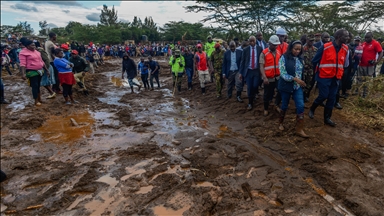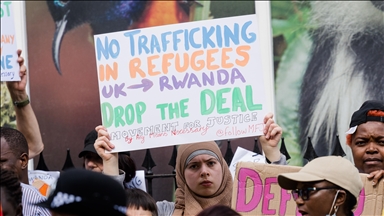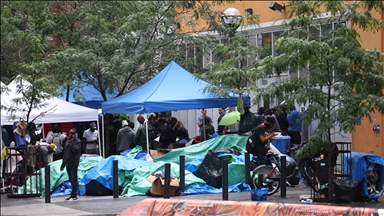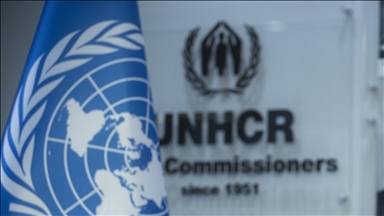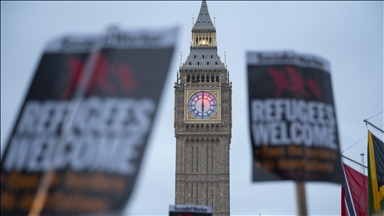Lack of funding depriving refugees of basic needs in Africa: UN
Refugees face deterioration in welfare with no access to basic needs, including healthcare, education, says UN official
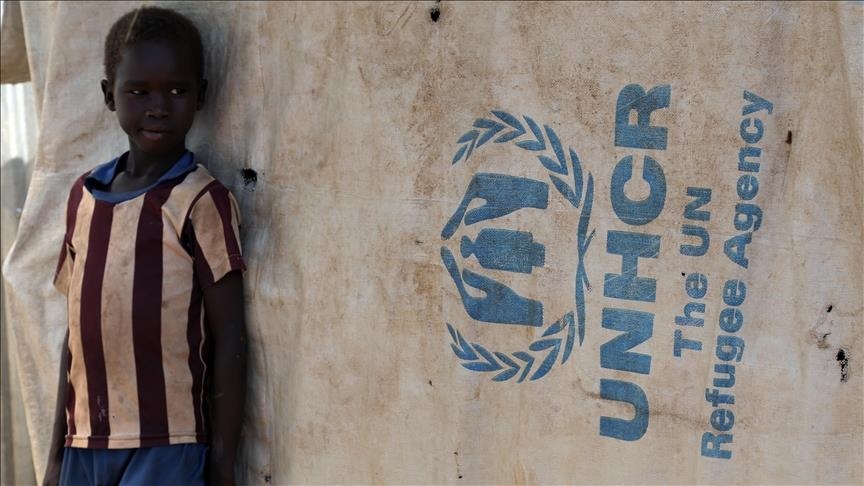
KAMPALA, Uganda
The level of funding for refugees in Uganda has shrunk, leaving many refugees with no access to basic needs, including healthcare, and education, a UN official said on Wednesday.
Speaking in the capital Kampala at the Intergovernmental Authority on Development (IGAD) and the East African Community (EAC) conference on durable solutions for refugees, Matthew Crentsil, the UN refugee agency UNHCR representative to Uganda, said that only 13% of the required amount had been received.
By the end of the first quarter (Q1) of 2023, only $113 million have been received, leaving a gap of $732 million out of the $846 million that is required.
According to UNHCR, the funding gap means that many refugees have no access to basic needs, including adequate healthcare, education, and a deterioration in welfare.
The United Nations World Food Program (WFP) reduced food ratios for the refugees in Uganda due to a lack of aid funding. Refugees in the Bidibidi settlement of the Yumbe District raised concerns over the decrease, saying it is a violation of their rights.
Uganda hosts the highest number of refugees in Africa, more than 1.5 million, and the third highest in the world. “The influx of refugees into Uganda continues on a daily basis with more than 17,500 new arrivals registered since January 2022. Most of the new arrivals are from the Democratic Republic of Congo and South Sudan,” said Crentsil.
“As of May 2023, in the East and Horn of Africa region, UNHCR reports 3.9 million refugees and asylum seekers, and according to the International Organization for Migration (IOM) and the United Nations Office for the Coordination of Humanitarian Affairs (OCHA), the region has 9.4 million internally displaced people (IDPs). Across the region, the number of refugees continues to rise at an exponential rate; there were 1.8 million in 2012, and now at 5.5 million as of March 2023. Of this number, some 2.3 million refugees and asylum seekers are from South Sudan. On top of that, about 19.7 million people are internally displaced in the region mainly as a result of conflict and drought,” he added.
Hilary Onek, the minister for refugees in Uganda, said the countries from where refugees come should contribute to solving the crises.
“As you are all aware, the East and Horn of Africa region has one of the highest concentrations of displaced population. These figures continue to grow and are likely to be intensified by natural disasters and climate change, such as the drought that is being experienced across the East and Horn of Africa. We need to agree on a coordinated approach to the refugee situation in the East and Horn of Africa region and solutions for refugees and host communities,” he said. He added that African countries should not wait for international partners to support them; they should tackle the issues and develop solutions.
Talking to Anadolu, Peter Goift, the refugee welfare chairperson from Rhino refugee settlement, said that sustainable livelihoods and access to essential services in refugee camps, such as education and health, are dwindling.
He urged the international community to show solidarity in alleviating pain and facilitating the safe repatriation of refugees from all backgrounds.
Lucy Daxbacher, the IGAD head of mission to Uganda, said member states are fully committed to their obligations under the Convention on Refugees 1951 and are ensuring access to fundamental human rights for all refugees.
Anadolu Agency website contains only a portion of the news stories offered to subscribers in the AA News Broadcasting System (HAS), and in summarized form. Please contact us for subscription options.


